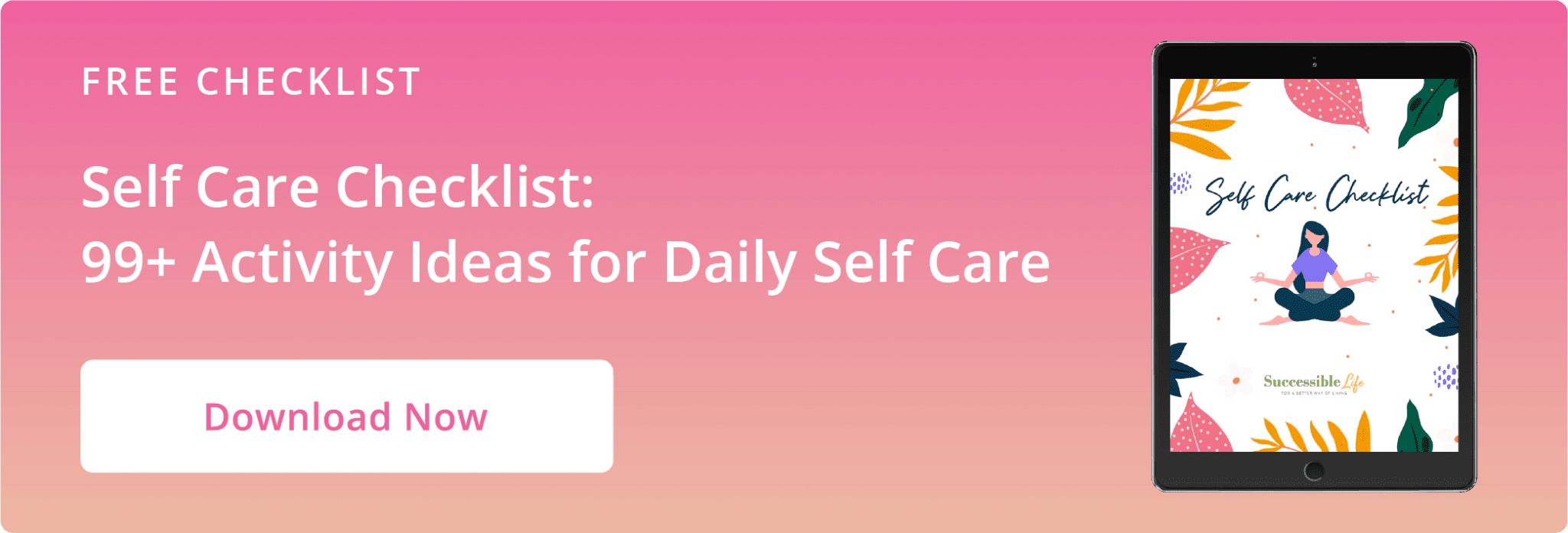Last Updated on March 28, 2025
“United we stand.
Divided we fall.”
—Aesop
As a psychiatrist who has treated over 1,000 patients in Manhattan, I’ve found that it’s not uncommon for a new patient to come for an appointment because of a tyrannical boss, a stressful dispute with a colleague, fear of an impending layoff or constantly feeling unfulfilled and disconnected at work. At times, finding fulfillment in the workplace can feel elusive. That’s why I recommend following a self-care checklist as a generally useful practice.
To start off, work stress, isolation and disconnection are some of the largest issues facing our society today. One source finds that over 40% of adults in America report feeling lonely, but research suggests that the real number may well be higher. Even though we may seem more connected than ever, levels of disconnect and isolation are actually rising. And this can lead to a slew of mental health conditions, such as anxiety and depression. Depression, already the leading cause of disability worldwide, affects more than 16 million Americans, costing the U.S. economy $210.5 billion per year in absenteeism, reduced productivity and medical costs.

The Impact of a Negative Environment
That’s especially troubling because the workplace, like any social environment, is fundamentally about connections. Issues like these can quickly combust into complaints about toxic coworkers or gossip in the workplace. Simply put, a negative environment like the described is symptomatic of a disconnect. Nobody enjoys the quandary of contemplating how to deal with difficult coworkers, which can drain the time, energy and resources of an organization as a whole. Fortunately, the solution to this “epidemic of disconnect” lies in authentic connection, one that starts with a commitment to self-improvement and mindful workspaces.
Authentic connection occurs when both parties leave an interaction feeling heard and understood. This stands in contrast to the illusion of connection, where the interactions just leave us feeling empty and shallow. Self-improvement entails taking the time and energy to understand our shortcomings and improve ourselves so we can better engage with and impact the world. Mindful workspaces are places that foster these authentic connections and create a sense of well-being, intentional community and collaboration.
Self-Care Checklist
In this article, I’ll introduce a short and simple self-care checklist. Following these steps can foster connection and fulfillment in the workplace, both from the standpoint of an employer and employee. To be sure, investing in workplace mental health and community collaboration doesn’t just help employees. Happier, healthier workers mean increased productivity, lower absenteeism and decreased disability costs for the company. The bottom line: investing in a mentally healthy workforce is good for business!
1. Commit to Growth and Development

Most of us want to take good care of our workplaces, our colleagues and our community. However, we must first learn to take good care of ourselves. There is a real reason that airlines remind you to put on your own air mask first. If you can’t breathe, literally or figuratively, then how will you be able to help others?
Overly competitive, hostile and/or disconnected workplaces can lead employees to feel constantly stressed, unappreciated and anxious. These things are the antithesis of well-being. But, before we move onto connecting with and supporting others, we must figure out how we can best connect with and support ourselves.
There are two ways to live a life, both personally and professionally.
Behind Door #1, you can choose to live a work-life of comfort and complacency. In the extreme version of this life, you figure out what you’re good at, do it over and over and then do your best to avoid challenge, risk and uncertainty. This life choice is commensurate with security and stability. Nevertheless, you run the risk of boredom, stagnation and lack of fulfillment.
Most of us want some level of security and stability, but not at the price of boredom and stagnation. So we venture behind Door #2, which features a work-life defined by growth, improvement and transformation. Those who choose this path will rarely find themselves bored and unfulfilled because uncertainty, risk-taking and self-improvement is the name of the game. For most of us, the optimal work-life is somewhere in between Door #1 and Door #2. This of course depends on how much uncertainty and risk our individual temperaments can handle.

Growth in the Workplace
To commit to growth in the workplace, identify one thing every day that you’re working to improve. This can be your people skills, patience, organizational skills, knowledge in a certain area, management ability or leadership potential. Find a role model who embodies the qualities you are working on to cultivate in yourself. Observe your role model’s attitudes and behaviors. Identify one or two things you can learn and apply to your own work performance.
For example, maybe your goal is to improve your networking and communication skills. Then you would choose one attitude shift or behavioral change you would like to make. Does this shift give you more confidence? Does it lead to increased connections in your workplace? Increased connections means more relationships, more understanding and a greater sense of well-being within a community. But it begins with your personal commitment to growth.
Committing every day to growth means at times you will fail or fall short. This is a healthy and natural part of the process, as it will bring to light the areas in which you need improvement. You should welcome these opportunities for self-improvement. Just remember the words of Lao Tzu, who said “the journey of a thousand miles begins with a single step.”
Effective workplace communication eliminates unnecessary misunderstandings and potential conflicts. Improving your communicative and interpersonal skills can significantly affect your productivity and performance. Workplace misinterpretations and conflicts are inevitable no matter what industry you’re working in, a common-sense approach and effective communication tools can help you resolve any issues respectfully and confidently.
2. Avoid Office Drama, Especially Gossip in the Workplace

The spoken word is extremely powerful. Throughout history, many spiritual traditions warn against gossip, negative talk and falsely tarnishing the reputation of others. The Hebrew phrase denoting this practice is lashon hara, which translates to “evil tongue”.
It’s said that when one speaks negatively about another, three people are actually being hurt in the process: the person speaking, the person being spoken to and the person being spoken about. Drama begets drama, and gossip only creates mistrust and a negative environment.
Think Positive
To turn the tables, think of the positive effects if this concept was reversed. Suppose we only spoke positively to each other — if we only spoke the “good tongue”. Instead, three people would be made better in the process: the person speaking, the person being spoken to and the person being spoken about. I’m not advocating here for us to suddenly become Pollyanna’s and sweep all criticism under the rug. Constructive criticism and honest negative appraisals have important role within any workplace. But it’s important that these discussions be had in respectful ways that honor rather than undermine the dignity of others.
To take concrete action on this, try to avoid all forms of gossip in the workplace. Instead, think about and act upon authentic feelings of gratitude and positivity that you have towards your work colleagues. Start to compliment people on what you admire in them. Give kind words when someone is doing something well. If you notice a conversation becoming gossipy, try to steer it in a positive direction. Or you can always leave and go to another part of the office, as our actions often speak more loudly than our words. As you begin to shift the patterns in your words, you’ll start to notice the positive energy and interactions circling back around to you.
3. Go Out of Your Way to Help a Colleague in Need

Beyond kind words, kind actions are vital in supporting our colleagues. A recent study on the neurobiology of giving versus receiving support showed that the act of giving to others can reduce stress-related activity and actually provide an overall greater health benefit than just being on the receiving end.
The findings indicated that feelings of well-being were enhanced by work interactions, which were trusting, collaborative and positive, as well as when participants felt valued and respected. The study also found that interactions detracted from well-being and health behaviors when interactions lacked these characteristics or were lacking in justice and empathy. Most importantly, the quality of people’s works relationships had profound effects on many aspects of their lives, including their physical well-being: sleeping and eating patterns, socializing, exercise, personal relations, careers and overall energy.

So appreciate being in service to others. Remember: we are all a greater piece of the pie, a cog in the greater wheel of life. Recognizing that our work extends beyond ourselves can positively impact the lives of others and put our day-to-day activities into a broader context. This enables us to appreciate the role we are playing in the grand scheme of things.
According to the study of Kabbalah, one of the purposes of our life is to transform our desire to receive for the self alone into the desire to receive for the sake of giving to others. By placing a premium on the very act of giving or being of service, we come one step closer to sustained happiness and fulfillment.
So reflect and ask yourself — how can you be more giving or helpful to your colleagues at work?
4. Practice Self-Care Yourself

In our current times, we as a society feel constant stress. We’re guilty of too much cell phone use, long periods of sitting and lack of real social and personal connections. In short, self-care is more vital than ever. Individual well-being and health practices are directly interconnected with organizational well-being, so the work we do on ourselves folds into the workplace. Self-care is also imperative to reduce stress.
Self-care activities manifest in areas like sleep, nutrition, exercise, hygiene, alone-time and other internal ways that one needs to be constantly regulating in order to feel healthy and well. Just to keep things organized, it might be a great idea to develop your own self-care checklist.
After all, self-care is a broad and all-encompassing topic — but here are some quick tips.
Self-Care Checklist
- Make sure to keep your body moving daily through fitness, yoga and/or exercise. Even 15-minute walks, stretches or light jogs are helpful.
- Start a daily meditation and gratitude practice (even if only 10-minutes in the morning, which will still provide powerful results).
- Create more boundaries for social media and cell phone use (or go on a three-week social media detox).
- Start developing good sleep practices to get seven-eight hours of sleep. Consider turning off the cell phone and laptop one hour before bed, stopping caffeine intake after lunch and even creating an evening wind-down practice.
- Eat nutritious whole foods, including leafy vegetables, and drink eight glasses of water per day.
Download our free self care checklist with 99+ activities that can help improve your overall well-being.

You will find that cultivating your own personal self-care checklist can be of enormous benefit. There are so many ways to take care of yourself — physically, emotionally and spiritually — that will fold into how you feel in the world, how you interact with the world and how you present yourself to it. The Dalai Lama beautifully summarizes this point:
“Every day think as you wake up, today I am fortunate to be alive, I have a precious human life, I am not going to waste it. I am going to use all my energies to develop myself, to expand my heart out to others; to achieve enlightenment for the benefit of all beings. I am going to have kind thoughts towards others, I am not going to get angry or think badly about others. I am going to benefit others as much as I can.”
Food for Thought: Self-Love Leads to Fulfillment and Connection
Self-love and self-compassion are what we need in our culture today. Unfortunately, our culture can breed a lot of “self-hatred” with terrible consequences, including acts of violence and hate.
With the rise of loneliness, depression and disconnection, we need to foster a shift to working on the self, practicing self-love and extending that love to others. From CEO to intern or family member to colleague, focus on self-love, self-compassion and being kind to yourself and others. These are all essential to alleviate the current predicament we find ourselves in as a society. Armed with this self-care checklist, you definitely have the ability to make a difference; as Mahatma Gandhi once wisely said, “If we could change ourselves, the tendencies in the world also change. As a man changes his own nature, so does the attitude of the world change towards him.”
Both as citizens and professionals, we can’t let the sneaking illness of disconnect dismantle our health. Let’s heal together and focus on cultivating authentic connection, genuine self-improvement and positive communication. In this way, we can improve our health, our minds and our communities.

Here are a few hand-picked articles for you to read next:
- Cultivating the 3 Essential Cornerstones of Healthy Self-Esteem
- 3 Key Steps to Finding Hope Amidst Adversity
- 5 Ways to Be a Happier Person
This article is part of the “Self-Care” series. Click here to learn more.
Dr. Anna Yusim is an award-winning, internationally recognized psychiatrist with a private practice in New York City. She is the best-selling author of "Fulfilled: How the Science of Spirituality Can Help You Live a Happier, More Meaningful Life." Having completed her studies at Stanford University, Yale Medical School, and the NYU Psychiatry Residency Training Program, she is currently a Lecturer on the Clinical Faculty of the Yale Psychiatry Department. She has traveled, lived and worked in over 50 countries, published over 70 academic articles, and presented at numerous national and international conferences.
- This author does not have any more posts.


